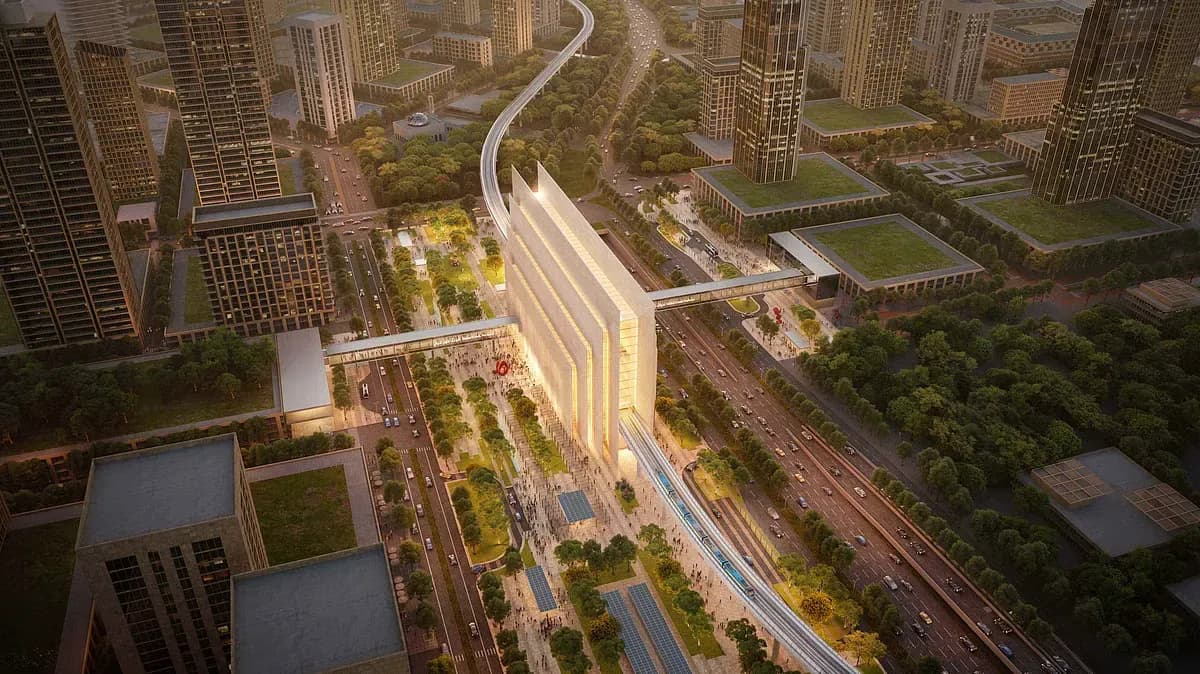This downturn is driven by a combination of economic uncertainty, changing buyer preferences, increased taxation, and global market dynamics. While London remains an attractive destination for property investment, the once-booming high-end sector is facing significant challenges.
Falling Prices in Prime London Real Estate
For the past decade, areas such as Mayfair, Knightsbridge, Belgravia, and Chelsea have been synonymous with luxury living, attracting wealthy buyers from around the world. However, data from leading real estate firms suggests that prices for prime and super-prime properties have been steadily declining. In some cases, luxury homes in London have seen price drops of up to 10-15% over the past two years.
This price correction is largely due to a slowdown in demand, particularly from international buyers who once dominated the market. The high-end property sector, which once thrived on wealthy investors from Russia, China, and the Middle East, has been impacted by geopolitical tensions, sanctions, and shifting investment strategies.
Impact of Economic and Political Uncertainty
The political and economic landscape in the UK has played a crucial role in the decline of the luxury property market. The uncertainty surrounding Brexit, followed by the economic instability caused by fluctuating interest rates, has made buyers hesitant to commit to high-value real estate investments.
Additionally, the UK government’s recent tax policies—such as increased stamp duty on foreign buyers, capital gains tax on property sales, and a mansion tax on expensive homes—have further dampened enthusiasm for London’s luxury real estate. Many potential buyers are now looking at alternative markets in Europe, such as Paris, Monaco, and Lisbon, where taxation policies are seen as more investor-friendly.
Shift in Buyer Preferences and Emerging Markets
A noticeable shift in buyer behavior is also contributing to the decline in London’s luxury property market. The post-pandemic world has reshaped real estate preferences, with more high-net-worth individuals prioritizing space, privacy, and lifestyle over central city locations.
The demand for countryside estates in areas like Surrey, Berkshire, and the Cotswolds has surged as affluent buyers seek larger properties with outdoor amenities. Additionally, overseas investors are now exploring alternative European cities, where luxury properties offer better value for money compared to London’s traditionally high prices.
Decline in Overseas Investment
Historically, London has been a magnet for foreign investors, particularly from the Middle East, Russia, and Asia. However, tightening regulations, global economic shifts, and political factors have led to a decline in international property purchases.
The UK government’s increased scrutiny on foreign wealth and anti-money laundering measures have also contributed to the slowdown. Sanctions on Russian oligarchs and increased transparency rules regarding offshore property ownership have made some international investors wary of purchasing high-value assets in London.
Meanwhile, the strengthening of the US dollar and economic recovery in the United States has led American buyers to shift their focus towards real estate opportunities in New York and Miami, where luxury properties remain in high demand.
Luxury Developments Struggling to Sell
Many high-end residential developments that were once in high demand are now facing difficulty in selling units. Areas such as Nine Elms and Battersea, which were expected to see a surge in demand for luxury apartments, are experiencing slower sales due to oversupply and shifting buyer preferences.
Developers are now being forced to offer significant price reductions, incentives, and flexible payment plans to attract buyers. Some luxury developments have even been repurposed or rebranded to appeal to a broader range of buyers, including domestic and institutional investors.
London’s Luxury Rental Market on the Rise
While the sales market has cooled, the luxury rental sector in London has seen an increase in demand. Wealthy individuals who are hesitant to commit to property purchases due to economic uncertainty are opting to rent high-end properties instead. This trend has led to rental price growth in prime locations, with short-term lets and serviced luxury apartments becoming increasingly popular among expatriates, business executives, and digital nomads.
The Future of London’s Luxury Property Market
Despite the current slowdown, London’s luxury property market is unlikely to remain in decline indefinitely. The city remains a global financial hub, and its cultural appeal, world-class education institutions, and historical significance continue to make it attractive to wealthy individuals.
Several factors could contribute to a future recovery in the high-end market, including:
Stabilization of interest rates: A more predictable economic environment could restore confidence among buyers and investors.
Tax Reforms: A reassessment of the UK’s property tax policies could make London more competitive compared to other luxury real estate markets.
New Infrastructure and Developments: Continued investment in new luxury developments, smart homes, and green real estate projects could help reignite demand.
Global Economic Shifts: If other major real estate markets become less favorable, investors may return to London as a safe-haven destination.
London’s luxury property market is undoubtedly facing challenges, but it remains one of the world’s most prestigious real estate markets. While falling prices, economic uncertainty, and changing buyer behavior have contributed to a decline in high-end sales, the market is likely to rebound in the long run.
For now, buyers have a unique opportunity to negotiate better deals on prime properties, while investors willing to hold onto their assets may see long-term gains as the market stabilizes. Whether London will regain its position as a dominant luxury real estate hub will depend on economic policy shifts, global investment trends, and the ability of developers to adapt to new buyer demands.




